
Tell Me Something I Don’t Know
You have your spring game face on, right? Eleventy-billion details to manage and no time to rest. I’ve been there; I know precisely the mileage count on your feet will be somewhere between 10 to 14 miles per day Mother’s Day week.
Not to add more miles to your hectic retail day, but a question came up to me recently that I think bears some thought: Do you require employees to walk the floor of all departments every morning? Do you walk them too?
Recently, I received an email from someone who was given the position as a trainer for new hires.
He forwarded me the document that outlined the top elements of what he expected to impart as the most important training takeaways for all of them. It was simple, straightforward and to the point.
Over and over he stressed and reiterated the huge importance of greeting customers properly and making them feel welcome. I couldn’t agree more.
However, more than that, the one thing on this list that stood out to me (insert lights and sirens here) as being something that many garden centers take too lightly is walking the floor every morning or at least at the beginning of a shift.
I have seen many a manager or owner walk the floor with a clipboard making to-do lists, but that’s not at all what I mean.
Cross Pollinating
I’m talking about more of an eyes-wide-open paradigm shift here. I want EVERYONE to walk the floor before a shift. From the loading dock to the cashiers — especially the cashiers.
And the WHOLE place too. It doesn’t have to be a long, drawn out affair; it can be swift and take a few minutes. Then quickly report to the manager or jot down some quick, possibly even anonymous, notes to drop in the manager’s inbox.
One of my favorite things is to ask, “Tell me what I need to know,” or, “Tell me something I don’t know.”
This is a very powerful tool for a business owner/manager to use.
Once you ask that question, the key is to shut- up, get quiet and wait.
Getting the perspective of what someone sees with fresh eyes is incredibly enlightening. Now, that’s not to say that you’re going to agree with everything or even make changes based on the feedback you get, but I can guarantee that you will learn a lot. Perspective is everything.
A cashier could spot plants or other products on the floor they had no idea had arrived or spot something that’s out of stock and save tons of radio chatter about it.
A person from the perennials section could see fabulous, potentially useful bits and pieces laying around that could become incredible parts for a future display.
Someone from the loading or delivery area could spot a potential insurance nightmare of a safety hazard.
A person who works in the trees could ask you an incredibly pertinent stock question about the annuals that you may not have ever considered.
You could get an inspiring idea for an event or promotion from someone who waters all day. And on and on … you get the picture.
This is cross pollinating at its best. When we can use each other to see outside of ourselves and the tunnel vision we create in our own rush to just get things done, we miss the opportunities to see things with fresh eyes.
We’re cross-fertilizing ideas across departments and purposefully adding a measured dose of chaos to our work that could benefit everyone greatly.
Many garden centers, either by design or by habit, tend to be very compartmentalized, giving limited exposure to other departments, inside or outside.
What if you are missing huge money saving and money making ideas or more efficient ways of doing things because no one understands what’s happening in other areas?
This often causes the seasonal ruts year after year that it’s not unusual to find ourselves in, and because we’re so stuck in our own forest, the trees just look the same after a while.
Time for a Crop Rotation
We don’t have to get crazy about this, just mix it up. Be generous with allowing people to ask the crazy questions.
- Why is this in that spot?
- Would it work better over here?
- Can we get better lighting on this for the late afternoon? I know I could sell some more of them if we did.
- These trees are not selling at all and they are taking a lot of time to maintain; can we reduce the price and put something else there?
- Why are we taking the time to try and revive a 4-inch pansy with aphids?
- Researchers have proven there is a strong link between the most creative people, (those who sell more) and their tendency to work on multiple projects or a “Network of Enterprises.” They make excellent points on why it works so well:
1. Multiple projects cross-fertilize: The ideas gained from one project provide the keys to unlocking ideas for others.
2. A fresh context is fun: A variety of ideas and work might seem distracting, but instead the variety grabs our focus. Things that we no longer “see” in our own little box seem like exciting new details.
3. While we’re paying attention to one project, our brains are processing ideas on others unconsciously (when that big idea strikes in the shower!): Scientists believe this is key to solving creative problems and unlocking fresh thoughts.
4. Each project in a network of enterprises provides a world away from others. There will always be roadblocks and dead ends, but having new projects to turn toward gives all of us the power to feel enthused and not crushed.
“You can’t grow the same crop in the same field indefinitely. Eventually the soil must be refreshed, by planting something new,” said philosopher Soren Kierkegaard.
What a liberating feeling for everyone. No one person MUST have all the ideas to make a team work well.
The key is not to get too many ideas all going at once; implement them steadily and at a reasonable pace so it’s not overwhelming.
You will come up with your own technique that suits your garden center and your Network of Enterprises.
The key is to create the environment that allows cross pollination of ideas, rotate your own crops when you stop liking what the harvest looks like, then come back and tell me something I don’t know.






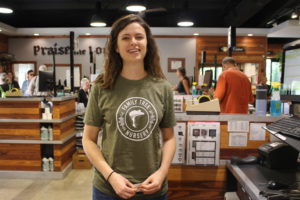

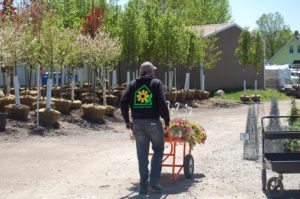


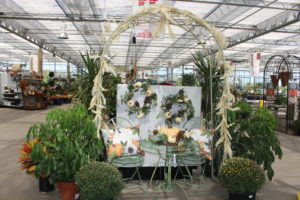
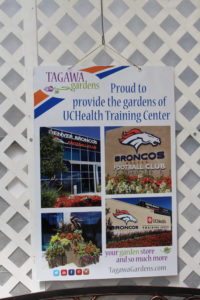


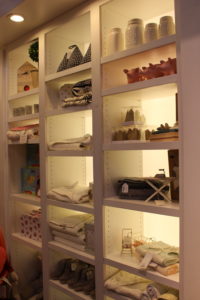


 Videos
Videos





